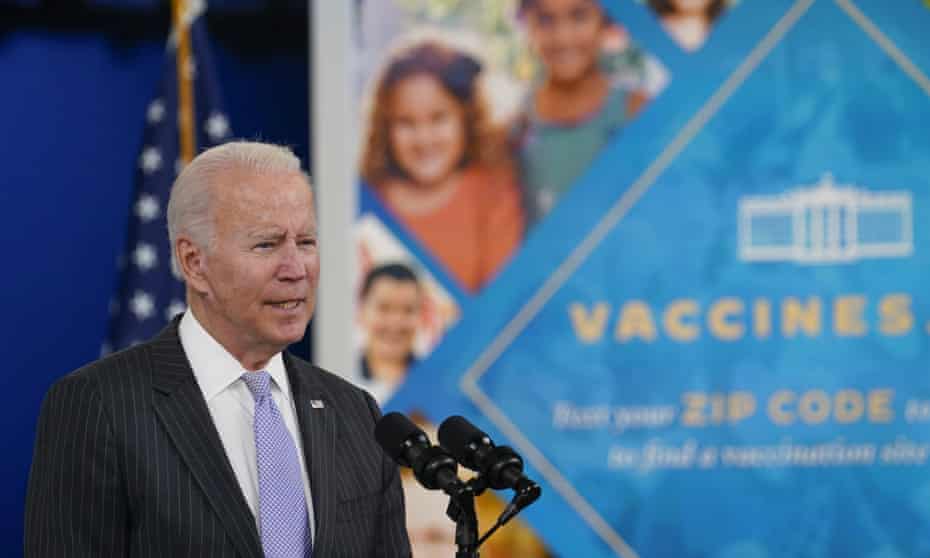Two Democratic senators push back against president’s rules for large businesses as cases continue to rise in the US

Despite having the endorsement of scientists and public health professionals, two Democratic senators have opposed Joe Biden’s vaccine-or-test rule for large enterprises, showing the difficulties the US president faces even inside his own party.
The US Senate voted on Wednesday evening to repeal the mandate as the number of new cases and hospitalizations in the country continues to rise.
Senators Joe Manchin of West Virginia, who co-sponsored the bill, and Jon Tester of Montana, both Democrats, crossed party lines to vote yes, joining 50 Republicans in opposing the public health policy.
The bill is viewed as mostly symbolic, as it would have to clear the Democratic-controlled House and would very certainly be vetoed by Biden. A federal appeals court has already placed the mandate on hold, and the future of the mandates will most likely be decided by courts rather than legislators.
But the vote showed the significant political problems Biden has faced in carrying out his public health policies to combat the pandemic. He has encountered virtually implacable Republican opposition – now joined by rebel Democrat senators – that has ranged from ideological concerns over how far government power can be exercised to fringe conspiracy theories and quack science.
Manchin, who is vaccinated and boosted, said the rule represents federal overreach, which is why he co-sponsored the bill.
“It is not the place of the federal government to tell private business owners how to protect their employees from Covid-19 and operate their businesses,” he said in a statement, nonetheless urging “every West Virginian and American to get vaccinated to protect themselves and their loved ones”.
West Virginia, which has the third-highest rate of deaths from Covid in the country, and Montana, where some health systems instituted crisis standards of care, have suffered devastating surges throughout the pandemic. Half of all West Virginians and half of eligible Montanans are fully vaccinated, both lower than the national average.
Public health experts fear the mandates, and political opposition to them, have further cemented the politicization of health policies.
West Virginia has joined other states in suing to undermine the mandates for large businesses and government contractors, both of which have been blocked by federal courts. Governor Jim Justice has said there’s “no chance” vaccines will be mandated in West Virginia schools.
“The data is very clear that mandates work,” Christopher Martin, a physician and professor at the West Virginia University School of Public Health, said. “I don’t know of any other measure right now that would get more people vaccinated other than requiring them to do so.”
- A court has ruled that Julian Assange can be extradited to the United States to face espionage charges.
- Two people have been detained for conspiring to sell a 16-year-old boy for GHC800,000.
There is a long precedent of strong vaccination requirements in workplaces and schools in West Virginia and around the country.
But concerns over the Covid vaccines combined with political polarization have “unintended consequences” because “people are mistrustful of governments”, Martin said. The opposition is not based on public health concerns but on civil liberties and other arguments.
“That starting point of not wanting the vaccine in the first place again arises from this broad and inherent mistrust in institutions,” he said. “People perceived these institutions to fail them.”
In West Virginia, widespread job losses over the past several decades have eroded trust in the government. The vaccine mandates expose larger societal rifts, Martin said. “Vaccinations in particular in this current climate have really exploded the problems that we have in our society.”
Officials, including in public health, “need to begin the exercise of restoring trust”, Martin said.
In the meantime, vaccine mandates will work like seatbelt laws once did, gradually becoming the norm, he said. “It improves compliance, but it takes a long time.”
The US is now seeing an average of more than 119,000 new Covid cases and 1,700 deaths every day.



